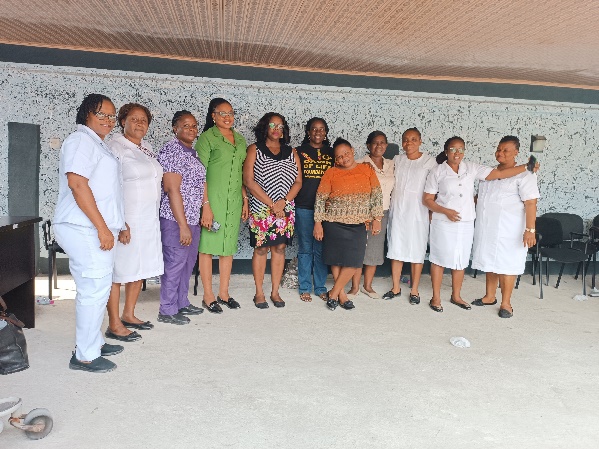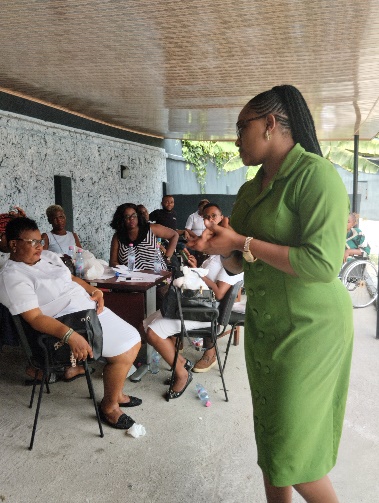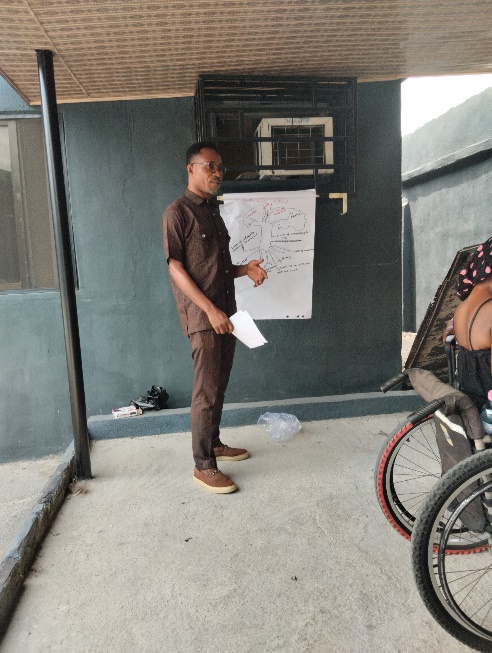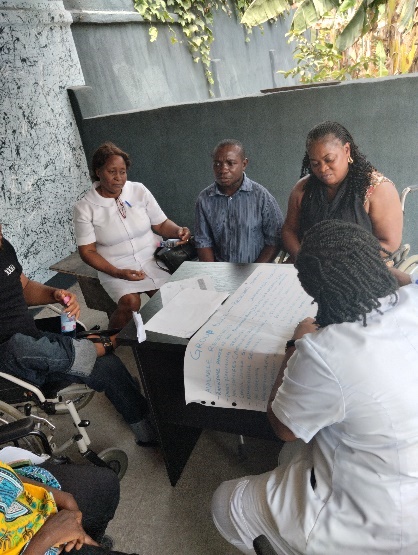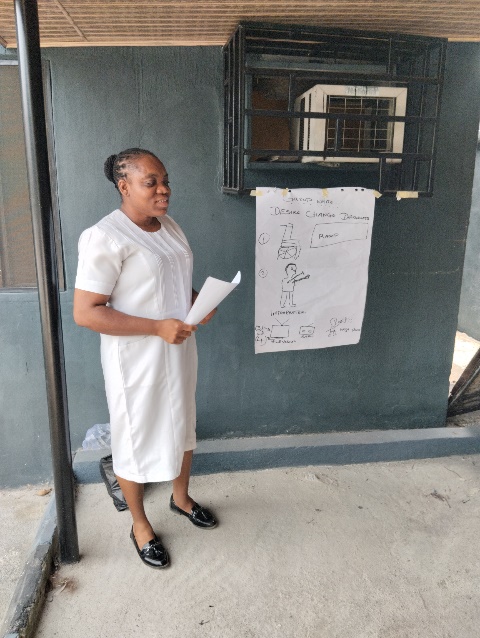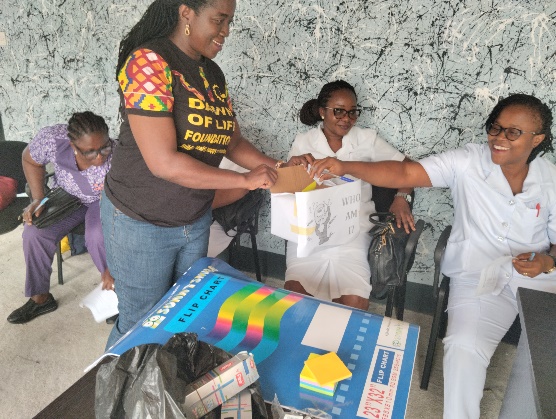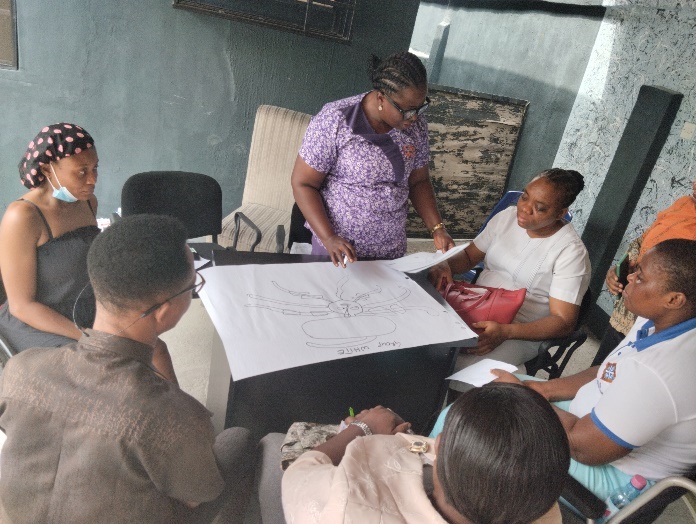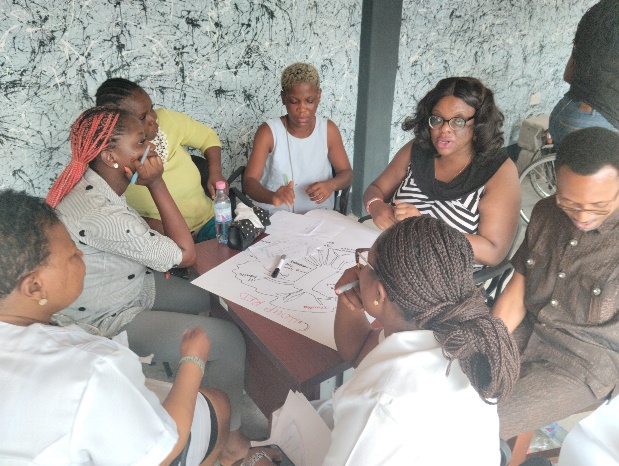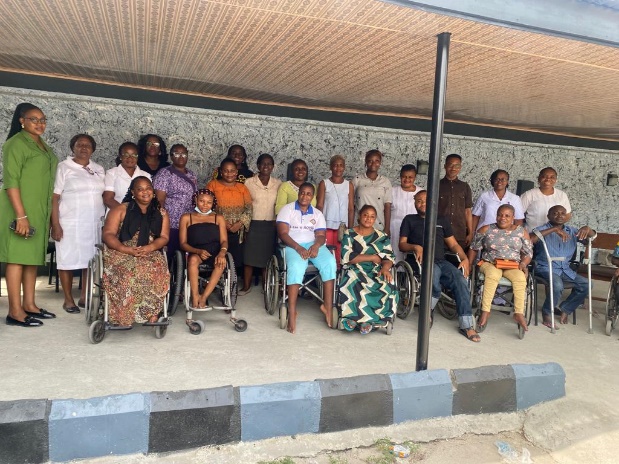Sexual and Reproductive Health and Rights (SRHR) are fundamental for women and girls to make well-informed decisions about their sexual and reproductive well-being. Unfortunately, those among poor, vulnerable, and marginalized groups, along with individuals with disabilities, often lack the autonomy to decide about their bodies and encounter limited access to appropriate services that meet their sexual and reproductive health needs.
Sustainable Development Goal 3.7 aims to enhance SRHR access by ensuring universal access to sexual and reproductive health-care services, including family planning, information, and education, and the integration of reproductive health into national strategies and programmes by 2030. Inclusivity is crucial for this to be achieved; services provided for some should be accessible to all, ensuring the consideration of diverse needs and preventing the exclusion of anyone from essential services.
The World Health Organization (WHO) emphasizes that realizing Sexual and Reproductive Health and Rights (SRHR) requires delivering all-encompassing and individual-focused services that cater to various aspects of SRHR. These services should be backed by a conducive environment, robust health systems, and meaningful community engagement.
According to the WHO Global Report on Health Equity for Persons with Disabilities, approximately 1.3 billion people, constituting 16% of the global population, face some form of disability. The 2011 World Report on Disability suggested that in every country, around 15% of the population consists of individuals with disabilities. In Nigeria, with a population surpassing 200 million, there are more than 30 million people with disabilities, including women and children.
Women and girls with disabilities comprise 10% of all women worldwide and 75% of PWDs globally (WHO). They are frequently impoverished, residing in isolated rural regions with limited economic agency, and encounter various layers of discrimination based on both their gender and disability status. Often, they are deprived of the autonomy to form relationships and make decisions regarding family planning. Many have been coerced into undergoing abortions or entering into marriages against their will. They are at higher risk of experiencing physical, emotional, and sexual violence, as well as being more susceptible to contracting HIV and other sexually transmitted infections (STIs).
Article 25 of the United Nations Convention on the Rights of Persons with Disabilities (UNCRPD) mandates equal access for persons with disabilities to the same range, quality, and standard of free or affordable healthcare and programs as provided to others. This includes areas such as sexual and reproductive health and population-based public health initiatives.
The National Policy on Sexual and Reproductive Health Rights for Persons with Disabilities was signed into law in 2018 and is domiciled at the Federal Ministry of Health. It was collaboratively developed by various Ministries, Departments, Agencies (MDAs), and organizations representing persons with disabilities (OPDs). The policy focuses on five key thematic areas below:
Increase knowledge; Awareness Raising, Popular Support, and Issue Mainstreaming
Increase Accessibility to SRH services for Women with Disability (WWD), i.e., access to education, SRH services, ease of movement/access to health facilities, information, and communication.
To improve the inclusion of WWD in Governance (mainstreaming WWD in government programmes, inclusion in policies and laws, and budgeting for Persons with Disabilities (PWD).
Building Bridges for partnerships and collaborations as well as capacity building across stakeholders.
Promoting Research, Monitoring, and Evaluation (M&E) for WWD issues, activities, and programmes.
Previous study in Nigeria highlights challenges faced by people with disabilities in accessing Sexual and Reproductive Health and Rights (SRHR) services due to environmental, health system, and individual factors. These include the lack of inclusivity for disabilities in SRHR policies, harmful social norms, and attitudes, inadequate infrastructure, and communication barriers within health systems, and individual factors such as age, gender, income, education, and perceived need. These factors collectively impact the access and utilization of SRHR services among people with disabilities in Nigeria
Dawn of Life Foundation (DOLF) recognizes that the above challenges require immediate response by the government, policymakers, and key stakeholders to improve the accessibility of persons with disabilities to sexual and reproductive health services.
In preparation for receiving a strengthening grant by AmplifyChange, Dawn of Life Foundation (DOLF), in collaboration with PLAN Health Advocacy and Development Foundation (PLAN Foundation) conducted a one-day multi-stakeholder rapid assessment and consultative session to identify the root causes and challenges faced by PWDs in accessing sexual and reproductive health services in Rivers State.
Stakeholders who participated in the consultation include; the leader of the Joint National Association of Persons with Disability (JONAPWD), Rivers State chapter, healthcare workers under the Rivers State Primary Healthcare Management Board, DOLF staff, and persons with disabilities in the communities.
The opening session of the meeting was anchored by DOLF’s Resource Mobilization officer, Mrs. Ifeanyichi Idika, who introduced the organization, its vision, and its mission to the participants. She also acquainted the participants with the objective of the meeting as well as the importance of every stakeholder being invited to the meeting.
After the opening session, the introduction segment was kicked off with a “Who am I?” exercise by DOLF’s technical team lead, Mrs. Nkechinyere Daniel to make each participant get to know each other and get familiar with themselves as equals regardless of their social status, age, sex, academic qualifications and other defining characteristics. She also acquainted the participants with selected tools to be used for the assessment.
Next, the participants were divided into groups. They were given exercises using selected community-friendly participatory learning appraisal tools ( https://frontlineaids.org/wp-content/uploads/old_site/229-Tools-together-now_original.pdf ) in identifying the root causes, challenges, and possible solutions to challenges faced by PWDs in accessing sexual and reproductive health services in Rivers State. Each group was named after colors, namely; White, Red, and Blue.
In the first assessment session, each group was asked to spend 30 minutes evaluating and presenting the root causes, challenges, and their effect on accessing sexual and reproductive health services by PWDs using appropriate tools as described in the attached group report.
For the second assessment session, the groups were guided by DOLF’s staff to spend another 30 minutes discussing solutions to the problems earlier identified in their group as well as recommending roles and responsibilities of the various stakeholders represented at the meeting. These are also contained in the attached group reports.

